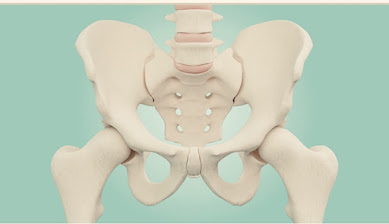Constipation Triggers Tailbone/Coccyx pain.
Tailbone Specialist in India Dr.Mubashira(PT)
Hello everyone
Todays topic is ###''Coccydynia pain triggers due to constipation''#####
Well this topic is boundless but I would be explaining the coccydynia connection with constipation..
As in my old post I have explained about Coccydynia that is Pain in the end part of spine which is felt especially in sitting position.Pain is felt during and after the bowel movements is also a common symptom of Coccydynia or Tailbone pain.
Constipation occurs when the bowel movements become less frequent and difficult to pass the stool.Generally it is due to changes in diet(due to less intake of fibre) and less water intake which cause severe pain or blood in stool and sense of incomplete evacuation.
Constipation happens when the colon absorbs too much water from waste (stool),which dries the stool and make it hard in consistency and difficult to evacuate.It damages the pelvic floor muscles from straining to move the bowel which in take gives pain in coccyx as it has role in defecation.
A research study by Grassi and colleagues, the authors reported that during a straining manoeuver, the coccyx moves into extension, or backwards.
Still there is a lot to learn about coccyx and its role in defecation.With this information we are sure that if a person has injured the coccyx segments especially if the subluxation is anterior / antevert (directed forward than normal)
then it can trigger the constipation, as the passage to push the stool has reduced.
So we need to make dietary modification and also we need to create the mobility of coccyx bone by Internal coccyx mobilisation or manipulation .
Do consult the specialist and treat the pain accordingly .For more details visit our website
www.tailbonetreatmentwomen.com
www.tailbonetreatment.com
Regards,
Dr.Syeda Mubashira(PT)
+91-9986632631.


Comments
Post a Comment